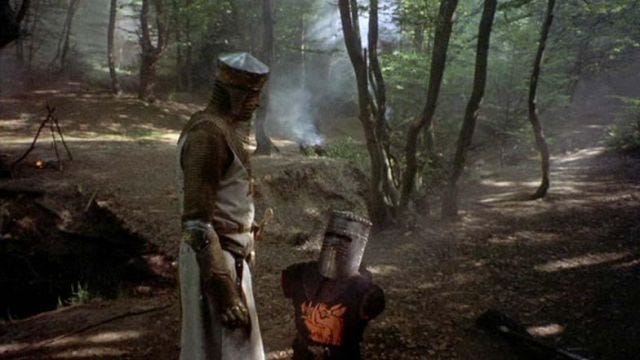“‘The bricks have fallen, but we will build with dressed stones; the sycamores have been cut down, but we will put cedars in their place.’” (Isa. 9:10)
One of the most insidious aspects of unbelief is its sheer tenacity. Like a piece of rebar fixed and unmoving, unbelief lies embedded in the human heart exercising unchallenged and terrible dominion.
But to make matters worse, the sort of dominion unbelief exerts is frequently a dominion that runs in complete opposition to the settled grain of reality. The world exists in one way, but unbelief insists it do so in quite another. Hence, God says sin is bad, and unbelief thinks it must be good. God says men are men and women are women, and unbelief cries “Oppression!” and flees to the nearest safe space.
Unbelief, in other words, possesses the unique ability to defy reality with stalwart determination. Indeed, this is one of its chief characteristics. It puffs its chest in the face of opposition, sneers at correction, admonishment, and rebuke, bullies into silence all views different from its own, and does everything within its power to secure absolute and unquestioned authority. Like Alexander of old, unbelief will face down the world in its quest for power. It is rapacious in its desire, immovable in its resolve. And, most amazingly, it is not perturbed in the slightest when a mountain of truth stands against it. Even if someone should rise from the dead, still it will not believe (Lk. 16:31).
Systemic Unbelief
All of this holds true for nations just as much as it does for individuals—in fact, there is an organic connection between the two. After all, if unbelief holds sway in the hearts of individual people, it’s only a matter of time before that unbelief will bleed into their families, workplaces, institutions, and governments also. A little leaven leavens the whole lump, as Paul reminds us (1 Cor. 5:6). Thus Israel under the old covenant, staggering around like a drunk under the just judgment of God, still had the audacity to say:
“‘The bricks have fallen, but we will build with dressed stones; the sycamores have been cut down, but we will put cedars in their place’” (Isa. 9:10).
And this at a time when the “whole head is sick, and the whole heart faint” (1:5); when “bruises and sores and raw wounds” lay exposed and untreated (v. 6); when the whole country lay desolate, its cities burned with fire, and enemies surrounded Zion on every side (vv. 7–8). At this time the people cried, We will build with dressed stones! We will replace the sycamores with cedars!
Such is the inane and unfounded optimism of unbelief. Manifest evidence of God’s judgment may abound on every side, yet still its response will be to fling itself further into rebellion. This time it will work. This time it will be different.
A Call to Repentance
The trouble is, it won’t be different. It never is. And for the simple reason that God, not man, is King of this world. In God’s world, water flows downhill, the sky is blue and the grass is green, cows produce milk rather than fruit juice, and the rebellion of sinners is met with the just judgment of God “both now and in eternity.”1 Rebellion, in other words, begets judgment as sure as injury begets pain. God is not mocked: we reap what we sow (Gal. 6:7).
What this means, therefore, is that we must learn, as the apostle said, to put no confidence in the flesh and instead glory only in Christ Jesus (Phil. 3:3). We must hold it as a settled conviction that no help will come to us from Egypt, since, “The Egyptians are man, and not God, and their horses are flesh, and not spirit” (Isa. 31:3).
The Spirit of the living God, poured out from on high, is the only agent capable of producing the kind of transformation we need. Only God’s Spirit can turn our wilderness into a fruitful field (Isa. 32:15), can raise our valley of dry bones (Ezek. 37:11-14), can breath into the dust and raise us up a living creature (Gen. 2:7). If we miss this, we miss the entire message of salvation: “Truly, truly, I say to you, unless one is born of water and the Spirit, he cannot enter the kingdom of God” (Jn. 3:5).
The role of the church in these evil days, then, must remain the same as it always has, namely, to preach the gospel of Christ crucified and risen and to call sinners to repentance and faith. The fog of unbelief lies thick on the unbelieving heart, and sinners will therefore look to all manner of self-saving, self-aggrandizing schemes for their deliverance, but Christians must remember that all such paths are fool’s errands.
There is one gospel and one Saviour who can deliver us from our misery. May we look to Him alone for our salvation and our hope.
Heidelberg Catechism, Article 12.




Excellent portrayal of where our nation is at right now and its euphoria over Trump. Unless our nation repents and turns back to God we are doomed. Please add links to social media so we can get these kind of articles out to the public with a "share" link.